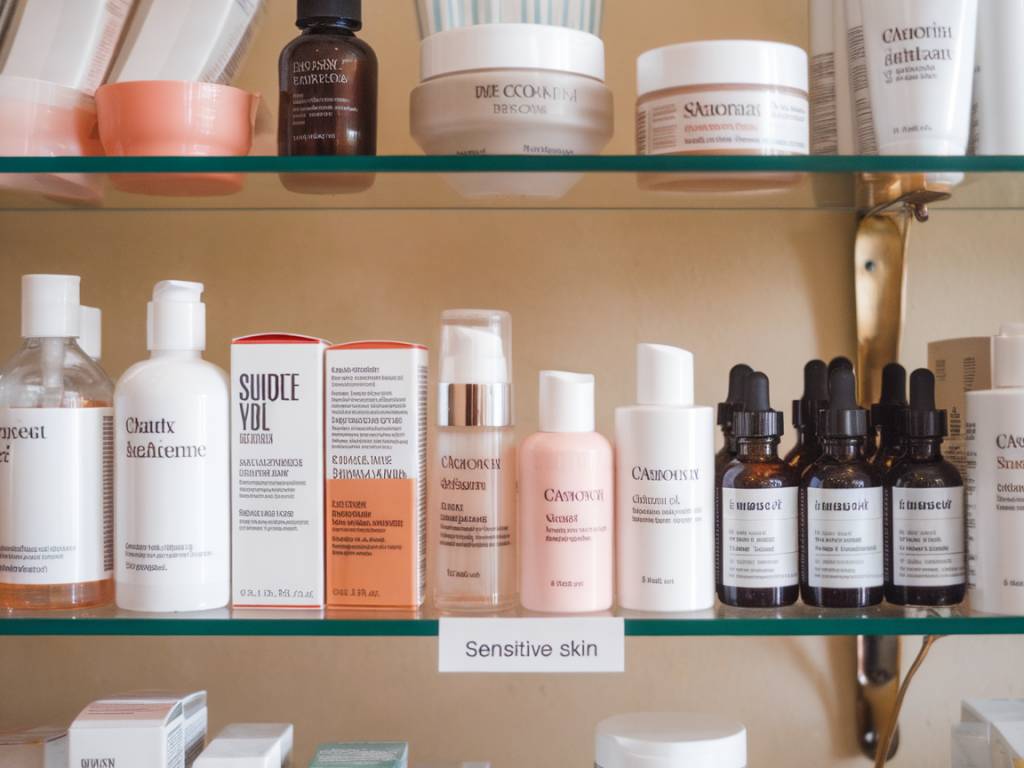Understanding Sensitive Skin
Do you find your skin reacting to products that others swear by? Or perhaps the weather change or even just hard water leaves your face in a flare-up? If yes, then welcome to the sensitive skin club—a club no one wants to join but many of us find ourselves part of! Sensitive skin isn’t just « imaginary » or « dramatic »; it’s a real skincare concern that requires a thoughtful approach.
Before diving into how to choose the perfect products, it’s important to understand what sensitive skin actually is. Sensitive skin tends to react easily to external factors, such as certain chemicals in products, fragrances, or even natural conditions like wind or sun exposure. This can result in redness, itching, dryness, or even breakouts. The key is to embrace your sensitive skin and work with it, rather than against it.
Why Choosing the Right Skincare Matters
For sensitive skin, making the wrong choice in skincare can feel like a gamble. That « miracle cream » your friends rave about might leave you dealing with blotchy redness or an itchy rash. Because your skin barrier might be weaker or more reactive than others, every single ingredient you put on your face matters. This takes us to the golden rule: less is more.
Avoid layering ten products at a time or blindly following the latest social media trends. Think of your skincare routine as a thoughtful ritual, curated specifically for your needs. The goal? To soothe, protect, and nurture your sensitive skin, not to overwhelm it.
What to Look For in Skincare Products
When standing in the skincare aisle, bombarded with endless options, it can be overwhelming. But don’t worry—here’s what you need to focus on:
- Fragrance-Free: Fragrances, whether natural or synthetic, are one of the top irritants for sensitive skin. Stick to fragrance-free products to reduce the risk of a reaction.
- Hypoallergenic: Look for this label on packaging. It doesn’t guarantee you won’t react, but it does mean the product is designed to minimize allergens.
- Minimal Ingredient List: Long lists often mean a higher chance of irritants. Go for simple, straightforward formulations.
- Packed with Soothing Agents: Ingredients like aloe vera, chamomile, oatmeal, and niacinamide are your best friends when calming irritated skin.
- pH-Balanced Products: A pH between 4.5 and 6 is ideal to prevent stripping your skin’s natural barrier.
Ingredients to Avoid Like the Plague
By now, you might be thinking about products from your skincare stash that sound like a potential red flag. Here’s a quick look at what to avoid:
- Alcohol: Not all alcohols are bad for your skin, but drying alcohols, like ethanol or isopropyl alcohol, can wreak havoc on sensitive skin.
- Essential Oils: While they smell heavenly, many essential oils can irritate sensitive skin.
- Sodium Lauryl Sulfate (SLS): Found in many cleansers, this ingredient can strip your skin of its natural oils.
- Harsh Exfoliants: Avoid products with large scrubbing particles or acids that are too strong, like undiluted glycolic acid.
Build Your Beginner-Friendly Routine
If all of this seems too much, don’t sweat! Let’s break it down into an easy, beginner-friendly skincare routine for sensitive skin.
- Gentle Cleanser: Start with a fragrance-free, pH-balanced cleanser to remove dirt and impurities without disrupting your skin barrier.
- Hydrating Toner (Optional): If your skin feels tight post-cleanse, a toner with soothing ingredients like chamomile or cucumber can help restore moisture balance.
- Moisturiser: Go for a rich, non-comedogenic moisturiser that seals in hydration without clogging your pores.
- SPF: Yes, even if you don’t leave the house! Opt for a mineral-based sunscreen (like zinc oxide or titanium dioxide) to prevent further irritation.
Swatch Test Everything
Here’s the golden rule for all sensitive-skinned beauties: always patch test before using a product! Apply a small amount of the product to your inner forearm or behind your ear and wait for 24–48 hours. If there’s no redness, itching, or irritation, it’s likely safe to use on your face.
It might feel tedious, but this small extra step can save you from painful and visible flare-ups. Trust me, your skin will thank you for it!
Keep It Simple and Stay Consistent
Fall into the trap of buying every “sensitive skin” product on the market? Resist! The best skincare routine is often the simplest one. Give your skin time to adjust to new products and avoid switching things up too often.
Pro tip: track your skin’s progress by keeping a skincare journal. Note down what you’re using, when you started, and how your skin responds. Doing this can help you identify patterns and truly understand what works best for you.
When in Doubt, Ask an Expert
If your sensitive skin issues persist or worsen, don’t hesitate to seek professional advice. A dermatologist can pinpoint triggers and recommend treatments or products tailored to your specific needs. This can be especially helpful for conditions like rosacea, eczema, or dermatitis.
Remember, while we all love trying out products and experimenting, there’s no substitute for expert guidance when it comes to your skin’s health.
Your Skin Deserves the Best
Sensitive skin doesn’t have to be a hassle. With a little extra care and mindful product selection, you can build a skincare routine that works for your unique needs. Think of your skincare as an act of self-love—a time to nurture, protect, and appreciate the natural beauty of your skin. After all, healthy skin is happy skin, and isn’t that what we’re all striving for?
